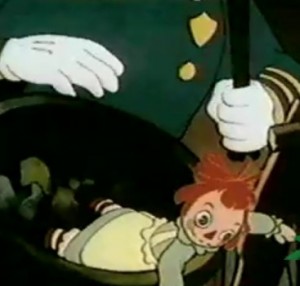Self-described as “America’s Lifestyle Coach For Health And Wellness” and “the quintessential, cutting edge fitness advocate leader”, Michael Torchia says he intends to sue Nintendo over the fitness claims it explicitly or implicitly has made for its wildly popular Wii game system, which, as Patrick at Popehat notes, is a bit of a competitor to his own services. The main success of the strained action will predictably be in drawing public attention to Mr. Torchia, a process to which, alas, we appear to be contributing with this very post.
Archive for February, 2009
CPSIA chronicles, February 12

- Virginia Postrel, who understands both the world of design and the world of ideas, has one of the best pieces yet on the law at her Dynamist blog. “Not since the early 1970s, has ‘regulation’–the general idea, not a specific proposal–seemed so alluring.” And this particular regulation? “It’s completely nuts”. Deploring the general blackout on the story across large sectors of the media, she also has kind words for the “exemplary” coverage found in certain other places. (Thanks!) Read the whole thing.
- “We stopped selling over 1,000 items today because of CPSIA. No other online Catholic stores appear to be aware of the law.” [proprietor of Aquinas and More; earlier]
- Dilemma for overseas makers of children’s items: find tactful way to announce ban on sales to U.S. customers [Etsy thread]
- Trust us, they said: per columnist Glenn Cook with the Las Vegas Review-Journal, Majority Leader Harry Reid’s staff assured constituent Molly Orr “that some sort of broader fix is forthcoming”. Oh, well, then we can all relax. In the mean time, Congress refused to consider the reform proposal by Sen. Jim DeMint (R-S.C.) during the stimulus debate, and Public Citizen gloats.
- State attorneys general and CPSIA: they’ve got wide powers.
- To understand how we could wind up with a law as bad as this, it helps to keep an eye on the pronouncements of CPSC Commissioner Thomas Moore — you know, the one whose resignation Congressional leaders are not demanding. Rick Woldenberg nicely skewers some of the vacuities in Moore’s public statements, including an expression of irritation that compliance with the law by February 10 was proving unfeasible given that “certain Hill staffers were assured by various segments of the children’s product industry, that there would NOT BE A PROBLEM with meeting the 600ppm standard”. (For sure, that should have settled it! It’s not as if anyone deals in children’s products who didn’t have a lobbyist present.) And in the comments section on our vintage-books post, Valerie Jacobsen points to a Moore letter of Feb. 3 (PDF) in which he proposes that some undetermined proportion of children’s books printed before 1985 “should be sequestered” until more is learned about their possible health effects. Wow.
- Where do reporters Jayne O’Donnell and Liz Szabo of USA Today get the idea that foes of CPSIA “have given up fighting the need for” the law and instead are now just begging exemptions? I agree with Deputy Headmistress, the newspaper seems just to be “pulling this claim out of thin air“.
- Okay, so phthalates are going to be taken out of the mix for playthings and child care goods, just to be on the safe side. What’s going to replace them, and are those replacements going to be more or less safe than phthalates were? For more on the tendency to substitute one risk for another, Google “MTBE” or “Tris” “sleepwear” or “cyclamates” “saccharin” “comparative risk”;
- Per Carrie Lundell, the new CPSC guidelines will permit crafters of kids’ clothing to pursue their dream freely so long as the garments have no closures or embellishments of any kind. Caftans all around! More comic relief, if you call it that: Jon Stewart “Daily Show” forum, “Fenrislorsrai” and commenters (“If your 12 year old is eating lightbulbs out of a microscope, you have more serious issues.”); Smothering Parents of America Association video, DollarMovies at YouTube;
- Blog treatment includes more from John Holbo at Crooked Timber, several posts at Popehat, Wacky Hermit on Thoreau and unjust laws, Charles Kuffner/Off the Kuff, Scholars and Rogues, Executive Pagan, Scott Greenfield;
- A reminder: if you’re just catching up with the story, our full archive of CPSIA coverage is here. If you’d rather listen — and don’t mind something a couple of weeks old, which therefore doesn’t take into account some newer developments like the last-minute stay on enforcement of testing — With Love Designs recommends a “great podcast about the CPSIA – explains it in terms I understand.” (Aw.)
Image courtesy ShopFloor.
Willie Gary and the IRS
The big-shot Stuart, Fla. injury lawyer, who’s provided this site with a steady source of material over the years, apparently isn’t going to be prime Cabinet nominee material any time soon given his run-ins with tax authorities.
February 12 roundup
- Driving through town of Tenaha, Texas? Might be better to get accosted by the robbers and not the cops [San Antonio Express-News via Balko, Hit and Run]
- Location-tracking Google Latitude application could pose liability problems for unwary employers [PoL]
- EMTALA law obliges hospital ERs to treat many patients. OK, so how about ELRALA next, for lawyers? [White Coat Rants]
- New Jersey judge dismisses defamation suit by three women whose picture appeared in book “Hot Chicks with D-Bags” [Smoking Gun, earlier here and, relatedly, here] More: Taranto, WSJ “Best of the Web”, scroll.
- Myrhvold, often assailed as patent troll, sponsors quote/unquote neutral Stanford study of patent litigation [MarketWatch]
- Some thoughts on much-publicized tussle between Associated Press and Shepard Fairey over Obamacon photo [Plagiarism Today]
- Creative uses of immigration law: get that little homewrecker deported [Obscure Store]
- More than a few real estate lawyers were “hip-deep in mortgage fraud”. Will they tiptoe away? [Scott Greenfield]
- Roundup on the awful Employee Free Choice Act [PoL]
Judges order California to slash prison population
The release of 25 percent of the state’s prison inmates might prove a tad controversial. [Kerr, Volokh]
New Amazon Kindle: Hey, those audio rights are ours!
Thrift stores, the day after
The Houston thrift shop in the video above is by no means alone. Elsewhere in the country, many resale stores are either closing their children’s sections entirely or drastically curtailing the line of goods they carry. Among them is Goodwill of Kansas (press release):
Painted toys and clothing with metal clasps or fasteners — including blue jeans, coats and hooded jackets for children 12 and younger — were pulled from store shelves Monday night, said Gayle Goetz, vice president of development for Goodwill Industries Easter Seals of Kansas.
The move affects 14 Goodwill stores in Kansas, including three in Wichita and one in Maize.
“We kept hoping we’d get some guidance, so we waited,” Goetz said. “We had our legal committee look at it last night and determined that there’s just too much liability.”
Half the supply of children’s clothing is gone at Omaha-area Goodwill for similar reasons (KPTM video).
At the same time, many other thrift stores nationwide are for the moment proceeding with business as usual, leaving kids jeans’, plastic playthings, pre-1985 books and other suspect items on the shelves, whether because they are breezier about taking on risks of liability, because they are unfamiliar with the law, or because they figure its terms are too irrational to actually be enforced. And even when they are withdrawing items from sale, some, like Goodwill of Kansas, are placing them into storage in the expectation that Congress will see reason (insert joke of choice here) and act to change the law soon.
Others, especially stores that specialize in kids’ resale, are thinking of closing their doors because of CPSIA or have already done so. “I have everything to lose,” said owner Kasey Brown in Ionia, Mich., who closed her Hey Baby Boutique a few days ago. (See also Maine and Arkansas items from our recent 50-state roundup).
One presumably unintended consequence will be to deprive nonprofit community and religious groups of millions of dollars in revenue with which they had pursued worthy causes. In the Charlotte area alone, kids’ resale at Goodwill is a $2 million business that supports job-training programs, the local director says. In an Indiana newspaper, a Salvation Army source is quoted as saying that the CPSIA blow could wipe out more than 16,000 places in drug and alcohol rehabilitation programs supported by the stores.
In Bend, Oregon, according to ABC affiliate KOHD, consignment store Stone Soup decided to take the unusual step of screening its stock for lead using the X-ray fluorescence method. It cost $1,500 a week to rent the equipment, 30 percent of tested items failed (lots of zippers, rhinestones and skateboards out there with lead content), and the store found itself having to fill out scads of paperwork since each failure had to be reported to Washington under the law’s defect-notification provision.
In his stump speech five years ago, presidential candidate John Edwards (as Alex Tabarrok noted at the time) was
fond of empathizing with the plight of a 10-year old girl “somewhere in America,” who goes to bed “praying that tomorrow will not be as cold as today, because she doesn’t have the coat to keep her warm.”
As John Tierney of the New York Times countered, however, whatever real economic problems America had in 2004, children going without serviceable winter clothes because their parents lacked money was not high on the list: “The second-hand children’s coats that remain in America typically sell for about $5 in thrift shops.”
Way to solve that problem, Congress.
More: Thrift-store shutdowns in Florida and Kansas, “truckloads” removed from Goodwill stores in Louisiana, shelf-clearings and disruptions in Virginia, upstate New York and Waco, Texas. Tucson resaler Casa de los Ninos reports taking a $70,000 hit from inventory suddenly rendered worthless. That can’t be easy to incorporate into the economics of running such a place, but maybe the owner can just go without taking a salary for a year or two. I’m sure some CPSIA proponents will say it’s his own fault for not informing himself better about the law in advance.
CPSIA: “Black Tuesday” for youth motorbikes

We blogged earlier about Honda’s and Kawasaki’s having pulled out of the U.S. market and ordered a halt to sales of their youth motorbikes. A similar Jan. 26 letter from third big maker Yamaha is reprinted here, and smaller makers are rumored to have taken the same step.
Thiel’s Wheels of Ohio: “We cannot sell you replacement parts for the ones you already own. This is not our decision; it is being made for us.” DealerNews (“The Voice of PowerSports Retailers”): “The value of inventories that now cannot be sold is unknown, but it probably exceeds $100 million, by our estimate. Just take 7,500 franchised dealers, many of whom carry $25,000 worth of inventory at wholesale cost.” Activism/protest ideas there and at Dirt Rider.
W.V. doc who generated 124 malpractice claims
Yes, he’s back in court: Dr. John A. King is now suing, for $50 million, the lawyer he hired to sue the three law firms that represented him previously. “King has an extensive history of suing hospitals who terminated his privileges, medical boards who took away his licenses and lawyers he hired to represent him.” Putnam General Hospital, where he previously practiced, and HCA have paid out around $100 million to settle claims against King. [Charleston Sunday Gazette-Mail].
Mississippi break
Dickie Scruggs pleads guilty in a second Mississippi judicial-corruption case, and prosecutors say more indictments will be unveiled shortly. [NE Miss. Daily Journal, Alan Lange/YallPolitics, NMC/Folo]
